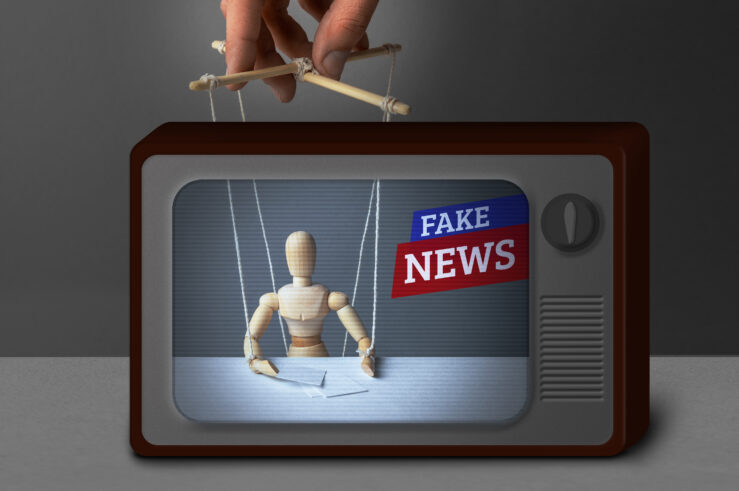Showing results for: “digital markets act”
SEC Organizational Reform Hearing
The semester is off to a bang. I arrived at Stanford Monday to start teaching in the Law School and begin a research fellowship at the Hoover Institution. Yesterday I hiked in the mountains overlooking the SF Bay. Today I am flying back to DC (and blogging in flight, how cool is that) to testify ... SEC Organizational Reform Hearing
Mergers and Innovation: DOJ and FTC Take Heed
Economists have long recognized that innovation is key to economic growth and vibrant competition. As an Organisation for Economic Co-operation and Development (OECD) report on innovation and growth explains, “innovative activity is the main driver of economic progress and well-being as well as a potential factor in meeting global challenges in domains such as the ... Mergers and Innovation: DOJ and FTC Take Heed
Using Bayh-Dole March-in to Set Patent Price Controls: An Assault on American Innovation
Under the Bayh-Dole Act, the federal government has the right to “march in” on patents on inventions created using taxpayer funds—to require the patentholder to license the federally funded patent to other applicants. The terms of the license must be “reasonable under the circumstances.” The act limits the exercise of march-in to specific circumstances related ... Using Bayh-Dole March-in to Set Patent Price Controls: An Assault on American Innovation
How Will the Law Deal with AI Getting Facts Wrong?
It seems that large language models (LLMs) are all the rage right now, from Bing’s announcement that it plans to integrate the ChatGPT technology into its search engine to Google’s announcement of its own LLM called “Bard” to Meta’s recent introduction of its Large Language Model Meta AI, or “LLaMA.” Each of these LLMs use artificial intelligence ... How Will the Law Deal with AI Getting Facts Wrong?
A preliminary assessment of the relative antitrust risk of a Comcast vs Disney purchase of 21st Century Fox assets
As has been rumored in the press for a few weeks, today Comcast announced it is considering making a renewed bid for a large chunk of Twenty-First Century Fox’s (Fox) assets. Fox is in the process of a significant reorganization, entailing primarily the sale of its international and non-television assets. Fox itself will continue, but ... A preliminary assessment of the relative antitrust risk of a Comcast vs Disney purchase of 21st Century Fox assets
Will Montesquieu Rescue Antitrust?
In an age of antitrust populism on both ends of the political spectrum, federal and state regulators face considerable pressure to deploy the antitrust laws against firms that have dominant market shares. Yet federal case law makes clear that merely winning the race for a market is an insufficient basis for antitrust liability. Rather, any ... Will Montesquieu Rescue Antitrust?
Net Neutrality Regulation is Bad for Consumers and Probably Illegal
TechFreedom and the International Center for Law & Economics will shortly file two joint comments with the FCC, explaining why the FCC has no sound legal basis for micromanaging the Internet—now called “net neutrality regulation”—and why such regulation would be counter-productive as a policy matter. The following summarizes some of the key points from both ... Net Neutrality Regulation is Bad for Consumers and Probably Illegal
David Balto on Some Quick Observations on the Drive for UMC Policy Guidelines
I appreciate the opportunity to provide comments on the current Section 5 discussion and add a few modest thoughts about the very thoughtful speeches of Commissioners Wright and Ohlhausen. I must admit, that as a former FTC Policy dude my mouth salivates at the thought of any new Guidelines. After all what could be more ... David Balto on Some Quick Observations on the Drive for UMC Policy Guidelines
Putting Politics over Policy at the FCC
FCC Commissioner Rosenworcel penned an article this week on the doublespeak coming out of the current administration with respect to trade and telecom policy. On one hand, she argues, the administration has proclaimed 5G to be an essential part of our future commercial and defense interests. But, she tells us, the administration has, on the ... Putting Politics over Policy at the FCC
Murthy Oral Arguments: Standing, Coercion, and the Difficulty of Stopping Backdoor Government Censorship
With Monday’s oral arguments in Murthy v. Missouri, we now have more of a feel for how the U.S. Supreme Court appears to be considering the issues of social-media censorship—in this case, done allegedly at the behest of federal officials. In the International Center for Law & Economics’ (ICLE) amicus brief in the case, we ... Murthy Oral Arguments: Standing, Coercion, and the Difficulty of Stopping Backdoor Government Censorship
The FCC, Privacy, and Authority Over the Edge: Forborn, not Forbidden
The FCC doesn’t have authority over the edge and doesn’t want authority over the edge. Well, that is until it finds itself with no choice but to regulate the edge as a result of its own policies. As the FCC begins to explore its new authority to regulate privacy under the Open Internet Order (“OIO”), ... The FCC, Privacy, and Authority Over the Edge: Forborn, not Forbidden
Facebook and the Pros and Cons of Ex Post Merger Reviews
The Federal Trade Commission and 46 state attorneys general (along with the District of Columbia and the Territory of Guam) filed their long-awaited complaints against Facebook Dec. 9. The crux of the arguments in both lawsuits is that Facebook pursued a series of acquisitions over the past decade that aimed to cement its prominent position ... Facebook and the Pros and Cons of Ex Post Merger Reviews









